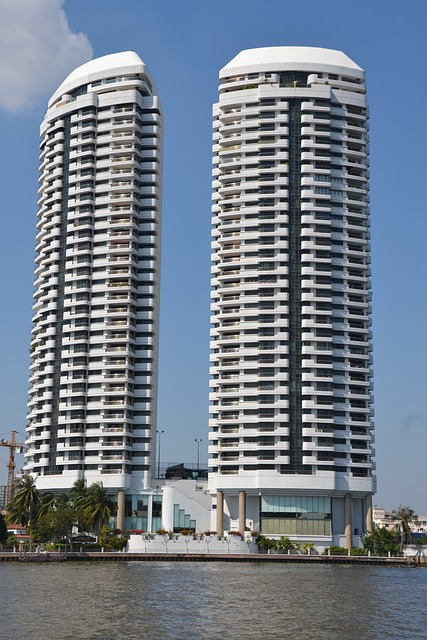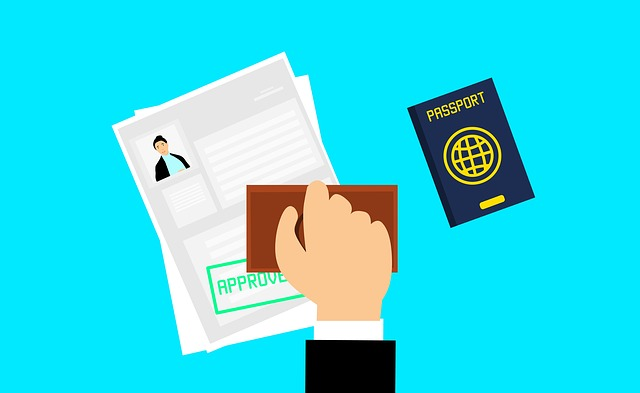Buying Property in Thailand - What You Need To Know

Do you want to invest in Thailand's real estate industry? If you are looking to acquire property in Thailand then you definitely can't afford to miss this article.
We will be discussing everything you need to know when buying property in Thailand - from property purchase agreements, local land offices, and foreign currency regulations to land ownership, condominium acts, and Thai company laws.
By the end of this blog post, you will have gained a clear understanding of all the rules and regulations concerning buying property in Thailand so that you can make an informed decision.

Introduction To Buying Property in Thailand
Whether you are a foreign investor looking to purchase a holiday home or a permanent resident, the process of buying property in Thailand is not a simple one. There are various legalities and different rules and regulations to bear in mind when making an investment.
This guide is designed to provide potential buyers with an introduction to the complexities involved in purchasing property in Thailand, from familiarizing yourself with the process and required paperwork to formulating an informed decision on what type of property you should buy.
Thailand's legal framework for property ownership is complex and for those who are unfamiliar with the system it can be difficult to navigate. It is important that potential buyers understand their rights and responsibilities before entering into any agreement.
Foreigners generally cannot acquire land in Thailand, but there are certain exceptions which should be considered when choosing your preferred option for owning property in Thailand.
Typically Thai nationals have more rights than foreigners, allowing them to legally own land as well as registering mortgages on it whereas foreigners are limited in terms of their rights. Foreigners can still purchase properties, but they will be subject to additional taxes if they choose this option.
Furthermore, if a foreign buyer wishes to purchase multiple properties they will likely require approval from Thailand's Interior Ministry - it is important that these legal requirements are taken into account when considering the viability of purchasing property in Thailand as foreign buyers may encounter difficulties which could delay or derail their desired venture into Thai realty industry.
Finally, many buyers will consult local brokers and agents when considering which form of investment best suits their needs - researching carefully can ensure that buyers can make informed decisions about precisely where and how much money should be invested as well as being aware of all applicable taxes associated with transactions.

Sale and Purchase Agreement
A Sale and Purchase Agreement (SPA) is a contract between the seller and buyer of the property. It will set out the terms like property price, payment details, freehold ownership, any special conditions, title tests that have to be done and time-frames for exchange of contracts.
The SPA must be signed by both parties and registered with the relevant State Land Office in Thailand. It is important to ensure that there is an adequate cooling-off period in the agreement so that both parties can get independent legal advice before exchanging contracts. Any amendments should be agreed upon in writing by all parties involved (foreigners buying property, property agent, Thai shareholders, etc) and signed, according to Thai property law.
Additionally, in the Thai legal system, both foreign buyers and Thai buyers must pay stamp duty on the sale of their property which will vary from 0.5% to 1%. This amount should be discussed at the time of signing a SPA as it may or may not form part of calculations for payments due on transfer or purchase of real estate in Thailand.

Property Purchase Process
The process of purchasing property in Thailand can be overwhelming, and it is important to understand the process and how it works in order to be successful. Property purchases usually must be registered at the local land office in order to fully transfer ownership.
The steps involved in a property purchase include: selecting your property, making an offer and negotiating with the seller, having your lawyer review all documents and arrange proper registration at the office, and receiving confirmation of the finalized transaction.
At the land office, you will need to pay all applicable taxes associated with the purchase. Then you will need to fill out a request for an official deed certificate of title which proves that you are now the rightful owner. This certificate must then be endorsed by a registrar who will confirm that all regulations have been met for a legal transfer of ownership which must also include the transfer fee. Once this has been done, your lawyer can provide documentation confirming that your purchase has been completed successfully.
Foreign Currency, Thai Law and the Land Department
Foreigners can own real estate in Thailand, either as freeholds or leaseholds. However it is important to understand the various laws and regulations governing the ownership of property in Thailand by foreign nationals.
It is also important to understand Thai law before making an investment like buying a property. Land owners have rights under Thai law that may influence their decision-making process while making purchases and they should be familiar with such legal issues before acquiring any type of land or property in Thailand.
Another major factor that prospective buyers will need to consider when thinking about investing in property is their relationship with the Land Department (Department of Lands).
It is essential that buyers work closely with this government department as they will be responsible for all dealings towards owning an asset within Thailand’s borders, from purchasing to administration and taxation. Thus, it is advisable for prospective purchasers to consult with a Thai lawyer experienced in these matters prior to making any investment decisions.

Condominium And Lease Agreement
Those interested in visiting, living or investing in Thailand should first consider properties available in the form of condominium units and lease agreements. This approach allows individuals to become owners of an exclusive piece of property (such as a condo unit) with a specified period of exclusive rights and title.
A condominium unit is simply a unit within a larger condominium building, and commonly being owned, leased or rented by multiple people. The lease refers to the contract between the actual owner and foreign lessee that outlines the contracts details such as term length, security deposit, monthly rent amount and other legal aspects.
To buy a condominium unit (or a condominium project) in Thailand, it’s recommended to secure the services of an experienced lawyer who can help clarify all the legal aspects you need to know to prevent any possible problems that could arise with your purchase.
It’s wise to ensure you fully understand all clauses outlined in any long lease agreement prior signing it as this document legally binds both parties until its expiry date at which point either party may terminate the contract or renew it for another specified period.
Overall, buying property in Thailand can be beneficial when making sound decisions but inexperienced individuals should always resort to third-party assistance from legal real estate experts if they are unsure about anything related their transaction such as property location type of units available.
Foreign Buyers and Land Ownership
When considering purchasing property in Thailand, it is important to understand government regulations for foreigners who want to buy and own land. Foreigners are not allowed to own land in the country, although there are ways around this law.
For example, a foreigner can own property through a limited company with at least 51% of the shares registered under a Thai national (for example a Thai spouse). It is possible for a foreign buyer to enter into an option agreement or leasehold agreement as well.
Before purchasing any kind of property, it is essential that buyers research the relevant laws and regulations regarding ownership and how they can protect their interests during the process.
For more information about the buying process and the Thai land code go here.
Additionally, it is advised that homebuyers seek legal representation from experienced local practitioners familiar with foreign ownership laws and regulations for property investment in Thailand.
It is important for buyers to understand what type of agreement they are entering before signing any documents or making any payments. Non-Thai citizens should obtain special permission from the Land Department before commencing any kind of transaction involving land in Thailand.
Condominium Act and Thai Company
According to the Thai Condominium Act, foreigners can now purchase condominiums in Thailand with certain restrictions. The law allows foreigners to hold 49% of the units in a condominium freehold while in certain condominium blocks a full 100 % of the units can be owned by foreigners on a freehold basis.
A foreigner is permitted to obtain ownership of a condominium unit if they have received permission from the Director General of the Department of Lands and are the owner or lessee of the land on which the building stands, or are granted a leasehold of a maximum lease period of 30 years with an option to renew from a rightful owner or lessee.
The law specifically states that no alien, either by himself or through his agent and juristic person, shall be registered as proprietor in fee simple title unless he has obtained permission under The Condominium Act. This means that if you choose to purchase property in Thailand as a foreign national with a freehold title, your name will not appear on any title deed. Instead, you will acquire ownership through an appointed company.
In order to acquire full rights over a property without being named on its title deeds it is required to buy via a Thai private limited company whereby you will be nominated as its director with shares owned by determining foreign owners within percentage prescribed by law. This type of ownership comes with additional responsibility and cost (initial registration fees, transfer fees, legal fees, etc.).
It is vital whilst considering this type of ownership route that legal advise and financial advice is taken before committing yourself legally and financially for long term period and here we highly recommend a qualified property lawyer so they can advise you in accordance with all property laws including convenience set-up titles such as leaseholds, lease acts, etc.
Ultimately this entire due diligence process will result in a stronger well informed decision for your long-term investment interests both now and for those generations who may follow you into this wonderful world we call Thailand… something held very important throughout Thai culture; preserving good karma for future generations.

Property in Thailand and Foreign Ownership
When it comes to buying property in Thailand, there are unique restrictions and considerations that foreign buyers should be aware of before making their purchase.
Foreigners are generally prohibited from owning land in Thailand. However, they may lease land with the right to possess it for a period of time specified by the agreement. Through a leasehold agreement (or "chanote"), foreigners may obtain limited rights to use and possess land such as residential housing or a commercial property.
Foreigners have many options when it comes to purchasing property in Thailand. The most popular option is condominiums, which do not require ownership of the land they are built on, making them ideal for foreigners who wish to own residential or commercial properties.
Another option is duplexes and other multi-level buildings commonly used for apartments and office space that can also be purchased by non-nationals without owning the underlying land.
Foreigners cannot own agriculture or other types of farm land in Thailand, but there are some exceptions if certain criteria are met such as developing the land into industrial agricultural lands or having a Board of Investment (BOI) approved project. Different restrictions also apply in different provinces so it's important to research local laws carefully before purchasing any property in Thailand.
These rules can vary greatly depending on the region so consulting local legal professionals is vital before entering a leasehold contract with a foreign property owner in order to understand your rights and obligations as well as any limitations imposed by law.
Things To Know About Buying Property
When buying real estate it’s best to have an experienced local lawyer who knows the intricacies of the laws in Thailand on your side.
Legal assistance is paramount when dealing with contracts written in Thai as well as translating documents into English that outline ownership rights. Other considerations include:
- Taxes - transfer taxes on foreign owned condos are lower than non-condo properties
- Financing - Foreigners cannot own land outright but they can finance up to 49% of its value. Learn more about vendor financing.
- Location – research areas before making a purchase – not just urban but also rural settings such as beaches or mountains

What Are The Common Pitfalls To Avoid When Buying Property in Thailand?
- Conduct your due diligence before considering any purchase. Make sure that you have investigated all necessary matters, ensuring that the title deed is clear with the Thai government and all necessary contracts and agreements are in order. Additionally, check the zoning regulations of the area before making an offer on a property in which you are interested.
- Ensure that you pay all government taxes associated with the purchase as failure to do so could result in legal repercussions down the road.
- Consult with a real estate agent or a real estate attorney.




